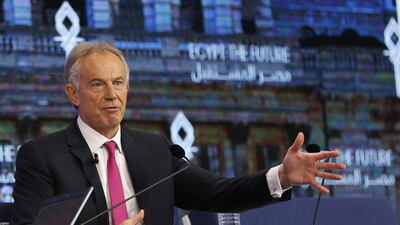What should be made of former British prime minister Tony Blair's admission that his shortcomings contributed to the rise of ISIL following the invasion of Iraq in 2003? To some, it is a long-overdue mea culpa for leading Britain into a disastrous war based on a lie. But for others, this is just a cynical use of yet more spin to mitigate the damage ahead of the release of the Chilcot inquiry into the war.
But the crucial answer might come from a corollary question: does it matter? For good or ill, ISIL is here and no recriminations or re-examination of the decision-making process are going to change that. Instead the risk is that by focusing too much on the past, we are taking away from the very real challenge we face right now from the extremist group that has taken over large portions of Syria and Iraq.
That is not to say that no attention should be paid to how reliance on faulty intelligence about weapons of mass destruction led directly to the US-led invasion and on how a failure to have adequate plans for governing Iraq after the invasion resulted in years of civil war and, eventually, the creation and rise of ISIL. As 17th century French philosopher Rene Descartes once observed, it is absurd to argue about something that could not conceivably be otherwise – and the past clearly falls in that category – but balancing that is the more modern adage that those who fail to learn the lessons of history will be condemned to repeat them.
Mr Blair’s admissions did not extend to apologising for the war itself or the decision to oust Saddam Hussein. However we need to bear in mind that retrospective vision is always clear and nobody is able to predict with absolute certainty how the future will unfurl. It is unnecessarily harsh to condemn those who were making judgment calls based on the information available to them at the time, even if now found to be faulty.
The civilised world has a formidable challenge ahead to not simply defeat ISIL militarily but also defeat the ideology that it and similar groups espouse, appealing to disaffected youth through a twisted misinterpretation of the message of Islam. Without the introduction of a compelling counternarrative, defeating ISIL’s military capacity will be ineffective because another group will rise in its place. That is the task at hand, and it will require our full attention.

